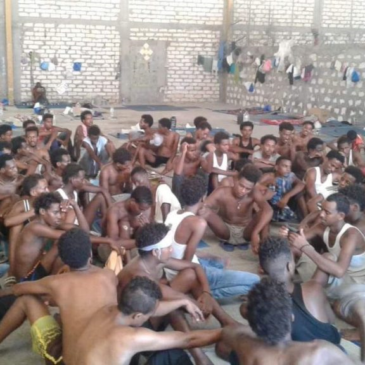News highlights: UNHCR closes transit centre in Libya, EU development aid tied to returns, Foreign aircraft carried out 2019 bombing of Tajoura Center, says UN
In this week’s news highlights: UNHCR closes GDF facility in Libya, citing safety concerns; Foreign country involved in the attack on Tajoura detention center in Libya; And refugee and migrant women more likely to experience sexual abuse than men; EU and China projects in Eritrea criticized; Ethiopian government allegedly violates human rights over protest arrests and kidnapping inaction; New Ethiopian navy in Djibouti; Eritrea, Ethiopia, Somalia strenghten ties; East African countries harmonize labour migration policy; Lack of basic support for refugees in Ethiopia; Illustrated story of an Eritrean refugee; Stories of refugee children from Eritrea; EU allegedly uses development aid to secure returns; Sick children suffer in refugee camp Greece; Naval operation ‘Sophia’ might not change focus as member states disagree; And Open arms saves 237 people in the Mediterranean Sea.



